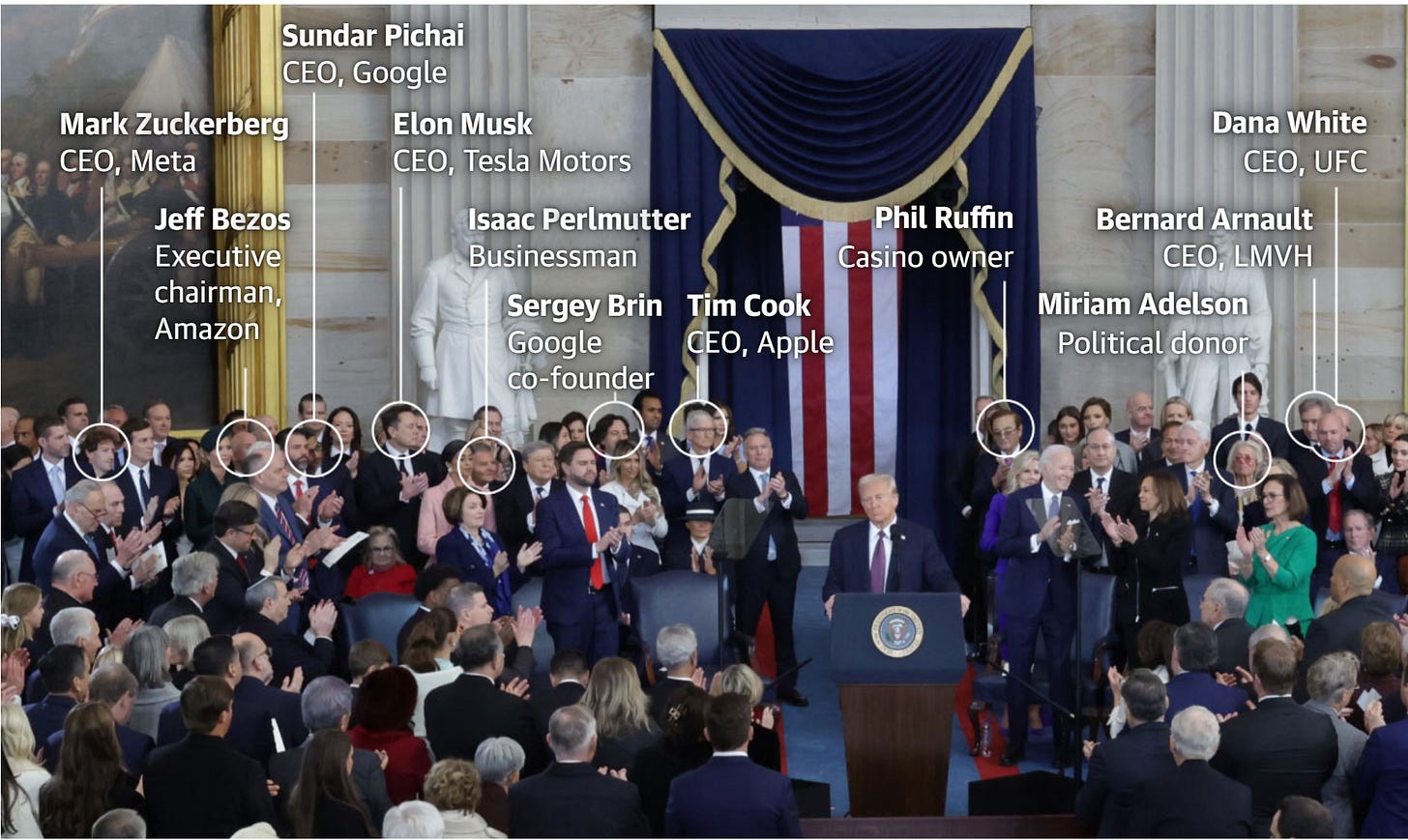As I have said and will keep saying, 2024 was the year of reveals. Most of those reveals were indeed depressing and political. But what was driving the revelation? What was accelerating it? Many journalists, scientists, and cultural commentators have the answer: losers. Josh of Tell the Bees wrote about 2024 as the year of the loser, how we as a collective refused to acknowledge the growing army of internet trolls that make our online experience unpleasant and the harsh ramifications of that ignorance.
“The veil has officially lifted, and all the darkest parts of the internet (rageful incels screaming “your body my choice,” the gleeful hurling of slurs, the return of the r-word and f-word, Gen Z fully doing race science on “X” and TikTok) have seeped into popular discourse. There is no separation between what’s happening online and what’s going on outside: this is the world now.”
But how? How did we get here, or, for the more well-adjusted of us reading this, how did they get there? Simple: trickle-down sociopathy.1 But who is that sociopathy trickling down from?
Tech Billionaires
The top of the year saw a lot of people with their mouths agape as every prominent tech billionaire bent the knee to Trump, their tongues eagerly displayed, waiting for that tasty boot to brush past. Of course, the founders of the very platform I’m writing this newsletter on, transparently disappointed that they weren’t invited to the gangbang, whisper-shouted their own support after the fact. I hope they get the next invite; they’re doing their best to run with the big dogs, and they really do deserve it.
But no one on the dais in late January or hiding in their NorCal high-rise churning out doublespeak dribble just woke up one day and decided to vibe with fascism or even plain conservatism. As Becca Lewis reports in The Guardian, Silicon Valley has always been conservative, it was born that way, and it will die that way. Conservative values were the cornerstone of the once fledgling Silicon Valley, where conservative thinkers like George Gilder ramped up the promise of a tech-led future and the mythology of the entrepreneurs that were going to get us there.
“Increasingly, Gilder claimed that entrepreneurs were better suited to lead the country into the future than the ‘experts’ found in academia or government.
Gilder’s 1981 book Wealth and Poverty became known as the Bible of the Reagan administration, and Reagan began incorporating praise of entrepreneurship into his own speeches. (“If I didn’t know better,” Reagan once stated, “I would be tempted to say that ‘entrepreneur’ is another word for ‘America’.”) Throughout the decade, Reagan used the mythology of entrepreneurship to justify trickle-down economics and cuts to federal welfare programs.”
A classic tech motto is “move fast and break things.” The companies and the billionaires that run them do move fast, so fast that the government is afraid to regulate nearly anything they do. But that’s just the political component. Tech also moves fast in culture; one moment everyone is watching low-res 10-minute YouTube videos on their computers, the next, they’re all on TikTok scrolling through 45-second videos for five hours straight, the iPhone screen searing their eyeballs.
If I think about my content consumption over the last 15 years, the things that algorithms have pushed up for my attention, I see a clear pattern. The biggest videos in my feed used to be prank and parody videos2. Sometime in the mid-2010s, that shifted to political content. Around 2016, a lot of it became low to no nuance. In 2020, that content started to take off. Quick tweets with alternative facts that don’t care about your feelings. One-minute cultural commentary TikTok takes, cited sources unseen. All of it on infinite scroll. Misinformation has always been available to the public, but social media platforms encouraged and accelerated the spread.
In the context of the end-stage capitalist gig economy (the one that big tech also had a hand in creating), this makes sense. Everyone has a main job and a side hustle, the economy perpetually sucks, a natural disaster is always occurring, affording property is a pipe dream, affording more than one nice night out with friends a month is an even bigger pipe dream. People are more risk-averse because we don’t have any time or money. Social media provides an escape from that. That’s how the gig economy bleeds into the attention economy. The short-form information delivered by someone being loud and wrong on TikTok or creepy and hateful on Twitter is laundered in with normal content. In the gig/attention economy, there is no time to parse through which is which; for many, at some point, it becomes more comforting to settle into the lull of white noise. Put on Netflix, bed-rot, settle in with a plate of whatever you popped in the air fryer, prime your thumb for hours and hours of sweet scroll time, let the low-sensory symphony begin.
But what are the tech trillionaires doing after they’ve tucked us in? They’re watching us, of course, like a bunch of Edward Cullens over millions of Bella Swans. In this newsletter, I’d like to zoom in on one of those vampires in particular.






